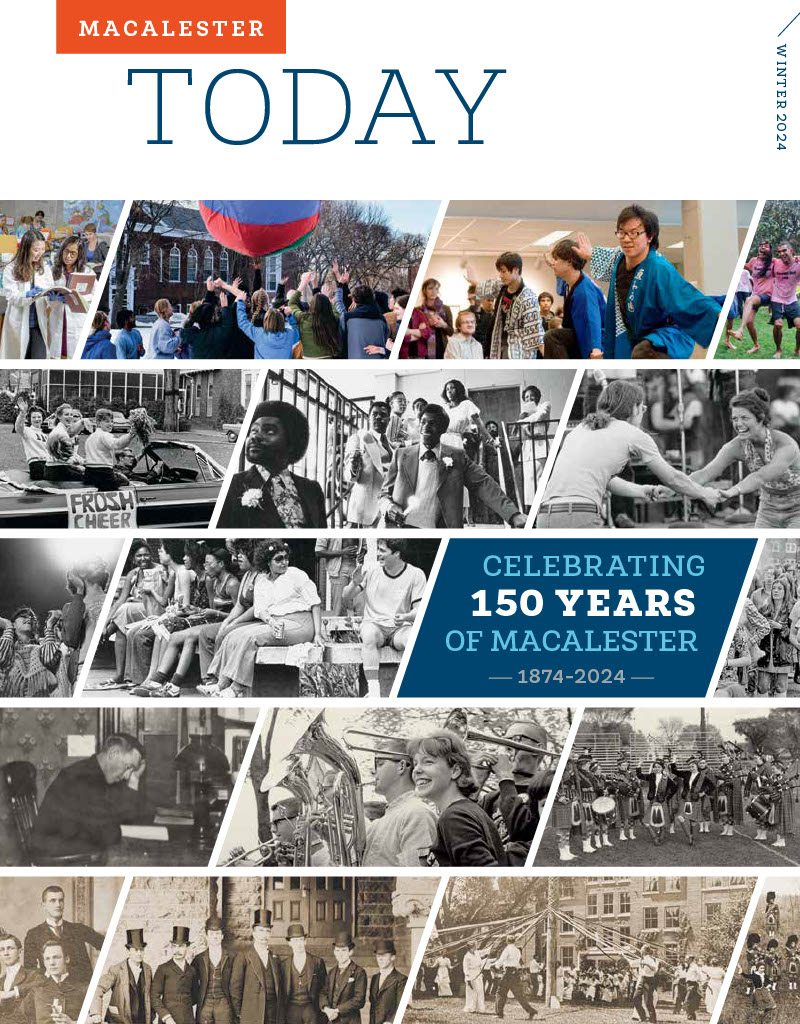
By Laura Billings Coleman / Photo by David J. Turner
As Americans gear up for another grueling presidential election season in 2024, a new Pew Research Center poll finds that only 10 percent of us feel hopeful about our political system, while nearly two-thirds of us are exhausted just thinking about it.
If you see yourself in these statistics, David Maeda ’87 has a suggestion: Sign up to be an election judge on November 5, and you may find yourself inspired anew by the commitment and coordination it takes to put on a free and fair election. “I tell this to everyone,” regardless of age, race, creed, or partisan leanings, says Maeda, the State of Minnesota’s director of elections since 2019. “If you’re worried, if you have doubts, then get involved.’’
This year, Minnesota’s more than 4,000 election precincts are expected to need up to 30,000 election judges, civic-minded citizens trained to support and safeguard the voting process for the state’s 3.5 million registered voters. But recruiting so many people after the 2021 Capitol attack and in the ongoing climate of election denialism may take a little extra effort.
“There’s never been a harder time to be an election official, with a not insignificant number of Americans who don’t believe elections are fair,” Maeda says. Though the name-calling and threats from voters accusing him of treason for certifying the 2020 election have died down, concerns about how artificial intelligence could imperil the 2024 election are just ramping up. “It’s very challenging to operate in this environment,” he says.
But being at the center of the nation’s news cycle nearly every November is also energizing for Maeda, a native of Roseville, Minn., who chose Macalester in large part because of its reputation for deep civic engagement. “I was always reading the newspaper and thinking about world events, but it seemed like no one in my high school cared about those things,” he says. “When I came to visit Macalester, I immediately loved the fact that everyone on campus was talking about politics.”
Maeda majored in journalism and history, worked as a sports editor for the Mac Weekly, and hosted his own radio show—a one hour weekly slot featuring nothing but Frank Sinatra. (“I had at least one listener—a woman who worked in the Geography Department who told me she liked it.”) His passion for pop music (he’s seen Bob Dylan in concert forty-nine times) led to a lengthy tenure at St. Paul’s Cheapo Records, which helped him amass a collection of more than 2,000 recordings (more than 200 by Dylan).
A few years after graduation, he got his first government job as a clerk-typist in the Secretary of State’s office. One of his duties was to drive Secretary Joan Growe around on election night, visiting the office’s two separate locations. Both the buzz and the bureaucracy of election work appealed to Maeda, who went on to a series of election administration posts in Washington and Hennepin counties, before becoming city clerk of Minnetonka in 2007. Returning to the Secretary of State’s office as director of elections in 2019 brought his career full circle.
“I’ll admit I liked the story arc of starting in one of the lowliest positions in this organization, and then coming back years later in a leadership position,” says Maeda, who recently finished writing a memoir including a chapter about his life in election work. As a Japanese American whose father’s family was forced into an internment camp in Idaho during World War II, “It’s not lost on me that my grandparents would be astounded that they would have a grandson who can serve in a position like this,” he says. “Many of us in this profession see this work not necessarily as a calling, but as something that is fundamental to our democracy. The people who get into this field feel this deeply.”
Maeda is also an elections leader nationally, serving as the secretary to the board of the Electronic Registration Information Center, a nonpartisan organization of twenty-four states and the District of Columbia aimed at both increasing voter registration and removing ineligible voters from state rolls. While Minnesota already leads the nation in turnout (with 79.57 percent of eligible voters casting a ballot in 2020), a host of new laws passed in 2023 may help even more residents get to the polls, including a new pre-registration program for sixteen- and seventeen-year-olds, restored voting rights for more than 50,000 individuals who have already served their time for felony convictions, and new protections for voters who need time off from work to cast a ballot. Maeda is especially enthusiastic about a new automatic voter registration program, similar to Colorado’s, linking Driver and Vehicle Services documents to voting records. When individuals get a driver’s license, they are automatically registered to vote.
While post-election reviews continue to show Minnesota’s election systems are sound, Maeda says that every cycle presents new challenges. Minnesota’s 2008 Senate recount “meant I had to become much more versed in litigation,” he says, while 2016 cyberattacks elevated security protocols, and the pandemic in 2020 meant “we had to become public health experts, too.” This year, disinformation campaigns are high on election officials’ radar, one reason Maeda is encouraging voters to get their ballot information directly from the Secretary of State’s website or from their county’s election office.
Still, Maeda says, the greatest threat to democracy in November is not showing up. “Vote in every election,” he says. “It’s the most important thing you can do.”
St. Paul writer Laura Billings Coleman is a frequent contributor to Macalester Today.
February 2 2024
Back to top





